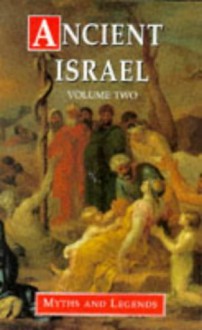
When I first heard of Immanuel Velikovsky it was suggested that he was a nutter, however a cursory glance across the Goodreads community actually suggest that there is some acceptance of his theories (and I would be one of them, if we restrict ourselves to this book). I wasn't really sure why people referred to him as a nutter until I discovered that another of his books, [book: Worlds in Collision] involved a theory that Venus was originally a moon of Jupiter that was ejected from its orbit and as it passed by Earth there was a worldwide catastrophe. Now, I have not read that book so I cannot tell what his research is like, or what evidence that he relies upon to support that hypothesis, but I must admit that the evidence that he uses to support his arguments that the Biblical and the Egyptian timelines that we currently use are out of sync by a period of about 600 years is quite sound.
The problem with ancient history is that our reconstruction of it requires an immense amount of guess work, and the further back in history that we go, the foggier it becomes. This is because the amount of literature that has come down to us from that period becomes much less. Personally I feel that our acceptance of the current timelines of Egyptian history are not based on any really solid foundation, and in many cases we are using assumption and simply forcing pieces of evidence together the way one would force pieces of a jigsaw puzzle together if they do not fit. As with the jigsaw puzzle, the resulting picture is an inconclusive jumble of rubbish that in the end does not make sense - which also ends up creating further excuses to reject the Bible as a legitimate historical text.
Velikovsky is not the only scholar who dares to question the accepted history with regards to the Biblical and the Egyptian history, as [author: David Rohl] also goes down that path with his book, though I will not necessarily discuss this here as I also intend to write a commentary on that book. However I feel that the problem that Velikovsky faced is not so much the research that formed the foundations of this book, but rather his other book, World's in Collision, which I suspect that many in the scientific and scholarly community found hard to swallow. Yet when one goes into the world of accepted scholarship one tends to encounter a group of people who are so set in their ways that any major change to any accepted theory is met with huge amounts of resistance. I find it funny that the Christian (or in fact any) religion is attacked, suggesting that they are backward and resistant to change, when we also find this stubborness within the scientific community as well.
I also discuss these theories in my blog post on Exodus: Gods and Kings.

 Log in with Facebook
Log in with Facebook 







